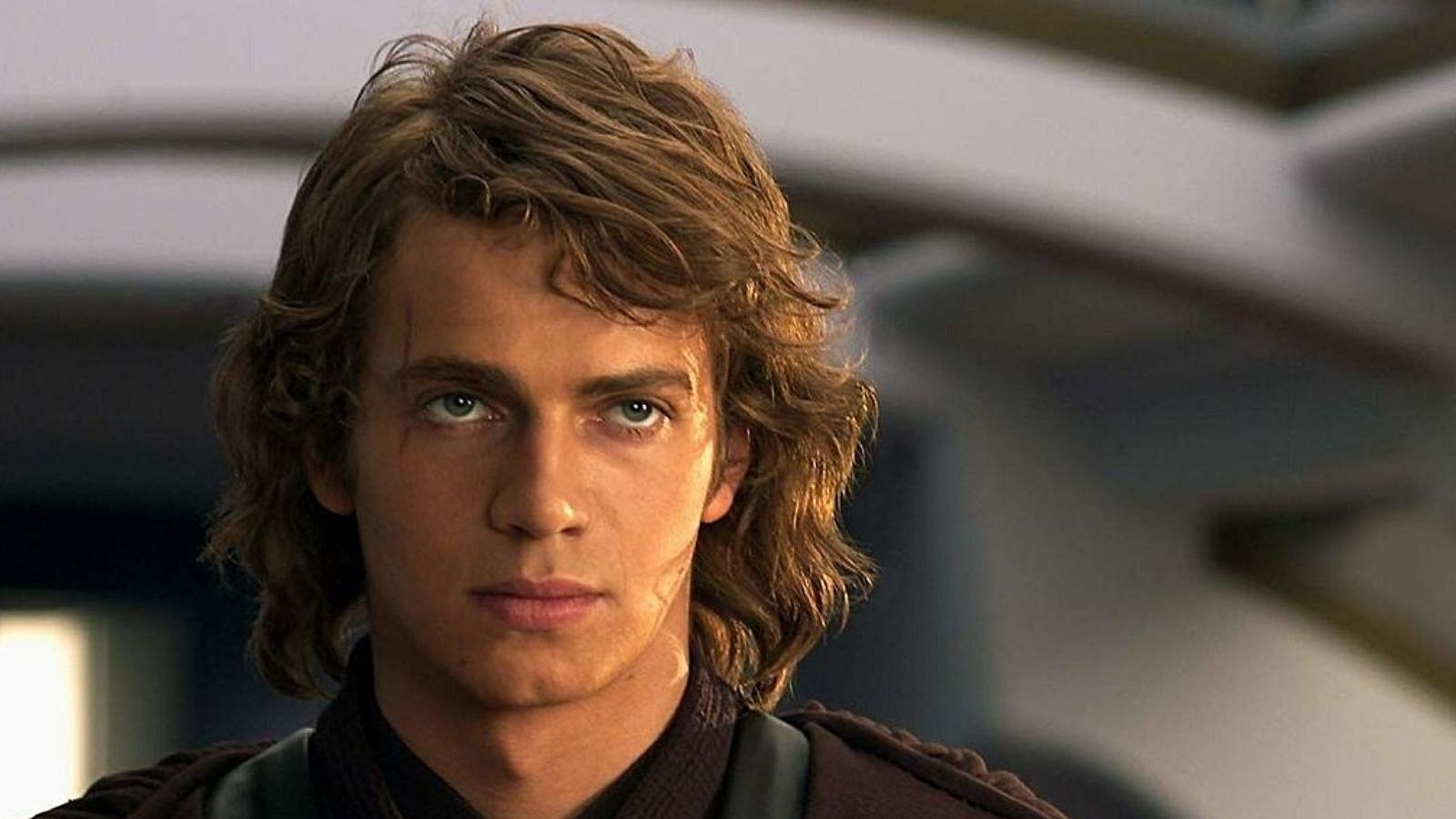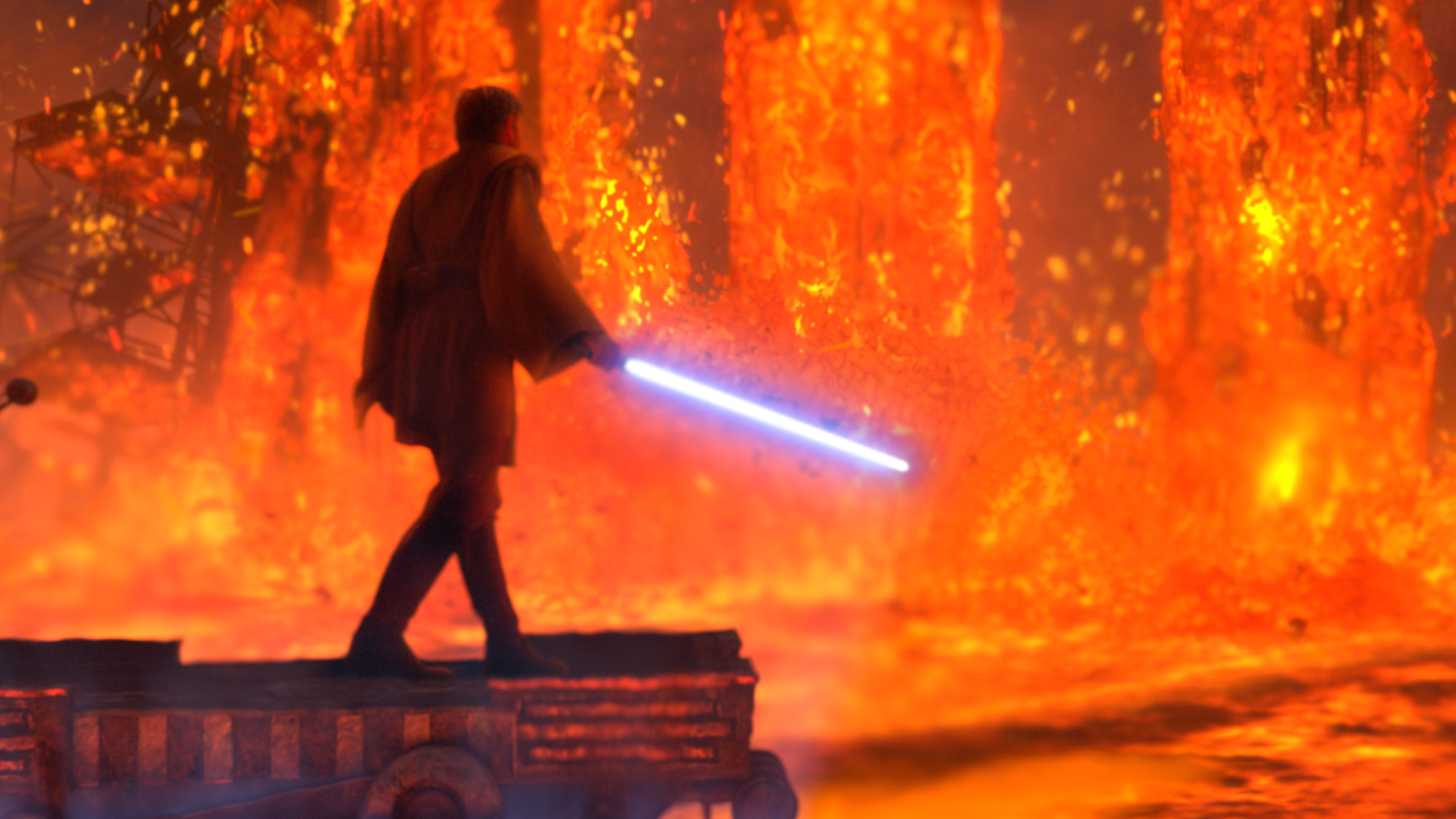This Star Wars book will change the way you think about the prequel movies
"Though this is the end of the age of heroes, it has saved its best for last."
Woah, I thought. This is the last line of the opening to author Matthew Stover's novelization of Star Wars: Revenge of the Sith. I'd heard murmurings that this book was well-received over the years – the book has significantly more positive reviews on Goodreads than the other two prequel novelizations, standing at 4.17 after more than 15,000 ratings – but I only recently decided to check it out. It's heavyweight.
It turns scenes in the movie that completely breezed past me into matters of life and death. The book paints a picture of a galaxy frayed by years of war. It uses sometimes flowery prose to turn every Jedi battle into an encounter between mythical figures – as if the entire universe's course turns with each duel. It makes the end of Anakin and Obi-Wan's friendship more devastating than the former's turn to the Dark Side, which is some achievement.
The book came to my attention through this cool bot account on Twitter, which shares choice excerpts of the story:
It is a story of love and loss, brotherhood and betrayal, courage and sacrifice, and the death of dreams. It is a story of the blurred line between our best and our worst.August 18, 2021
My discovery of this novelization is not a new thing, though. The Revenge of the Sith book's reputation has persisted among Star Wars fans for years. You'll frequently find Reddit threads asking if it's a solid read, with plenty weighing in to recommend it. As a piece of Star Wars paraphernalia, it's still a treat to read in 2021, and clearly more satisfying than the film.
I decided to reach out to Stover and discuss why the book has still got such a strong reputation among fans, 16 years after it was released.
"I knew going in that the novelization was going to be released before the actual film, and when I was writing it, I had not seen any of the actual film," Stover says about his angle on the project. "I was working from the final shooting script like an outline. And so I thought that it would not do the story any favours to describe the visual details, because I would just be guessing as to what Mr. Lucas would actually be putting on the screen."
Jedi mind trick

That's what led to Stover dialling in on each character's inner psychology instead. "I decided to focus the book on the interiority of the characters – to try and express how I thought they would feel about what they were going through. And so the idea was that the book would be kind of the interior, the feeling of it, and the movie would be the visual parts. That was more or less my plan – to try and make a story that would expand on and complement the film rather than just retell it."
The book's main achievement is the way it gets into the mind of Anakin Skywalker, as a person who's absolutely paralyzed by a fear of loss despite being tremendously powerful.
The movie famously does a muddled job of portraying this: you know Anakin will do anything to save Padmé's life, but by the time he turns on the Jedi, he comes off as petulant and deeply unlikeable. In the novelization, you spend so much time in his head that you sympathize with his desperation – it adds so much texture that the movie probably wants you to feel, but couldn't quite get on the screen.
"I was taking my best swing at expressing what I thought George Lucas's intentions were in the way he had been representing that character throughout the first six Star Wars movies," Stover says. He spent a long afternoon with Lucas before the movie's release, which helped him dial in on the director's thoughts about the Jedi, Anakin and what he wanted the book to be.
"I had a lot of the stuff in the book about Anakin's critical failing: it being his attachment, his fear of loss, fear itself and the irony of the reputation that he has. They call him, canonically, the hero with no fear – whereas, in fact, he's ruled by fear, and that's what causes his fall."
Stover credits that angle to Lucas himself. "That's not the result of any particular insight on my part. That was what I got from Mr. Lucas in, you know, not in so many words, but just from our conversations on how he wanted the story to be presented."
"I think it came out well. There were some things in the writing, in my portrayal of Anakin's psychology, that Mr. Lucas did not agree with, and he line edited the book himself and took out all of the things he didn't like [laughs]."
Characterization aside, what the book does better than the movie is sell the stakes of a collapsing Republic. The Jedi Order is spread too thin, Palpatine is dubiously gathering power and paranoia is rife about the identity of the Sith lord Darth Sidious. Disaster feels inevitable.
All of this is in the movie in some form, but the book gives this backdrop more breathing room. "I had written two Star Wars books before I wrote the novelization. And so I was really well grounded in the environment and the politics and the forces that were creating the divisions that caused the Republic to eventually fall. I had all that on-hand in my brain already."
The author had also previously read about the way things can historically sour in a democracy, which informed the book. To read the novelization in 2021, the themes of Revenge of the Sith end up seeming bizarrely prescient – in a way they certainly didn't back in 2005.
"The idea that really brings down the Republic, or begins the destruction of the Republic, is unrestrained capitalism," Stover says. "It was not a popular idea when Mr. Lucas came and created the story for the prequel trilogy. It is still not a popular idea, but it has gained considerable currency in the last five or six years."
Changing perspectives

The book will definitely please Star Wars diehards more than regular viewers – that's why I think I've gotten so much out of it. I'm fascinated by younger pop culture writers who go to bat for the prequel movies, which are so firmly disliked by my generation, and it speaks to a divide on the merits of these films. The prose helps to calcify those themes that some viewers appreciate more than I do.
I ask Stover whether he thinks the positive shift in response to the prequels is because some vocal Star Wars fans are just younger these days, or if people have changed their minds a little on the movies in retrospect.
"I think it is both. I think that what fans like me wanted the prequels to be was never part of George Lucas's vision for the prequels. One of the things that I learned from talking with him that long afternoon is that he is as big a fan of the Jedi mythology as any of us are."
"Now, people just kind of look at them without the same expectations that they had before they came out. Just look at them as individual pieces of George Lucas's vision, and I think they come off better that way."
Revenge of the Sith is still the best-selling novel with Stover's name on it – it's fascinating that a tie-in book is so frequently called superior to the movie it's based on, especially when fans still talk about it more than a decade later. According to the author, though, he was just tapping into the magic at the heart of Star Wars that was already there.
"If anything, I would say people tend to give me more credit than I actually deserve," he admits. "There are people who seem to think that I brought something to Star Wars it didn't have before. And I don't agree. Whatever virtues that novelization has are just the result of just pointing out the things that I and a lot of other people always loved about it."
Star Wars: Revenge of the Sith is available in paperback, on Kindle, or via audiobook. Among his other books, Matthew Stover has written The Acts of Caine series of books, which are also available in the US and UK.
- The Book of Boba Fett: what we know so far
from TechRadar - All the latest technology news https://ift.tt/3h2s3gN

Comments
Post a Comment